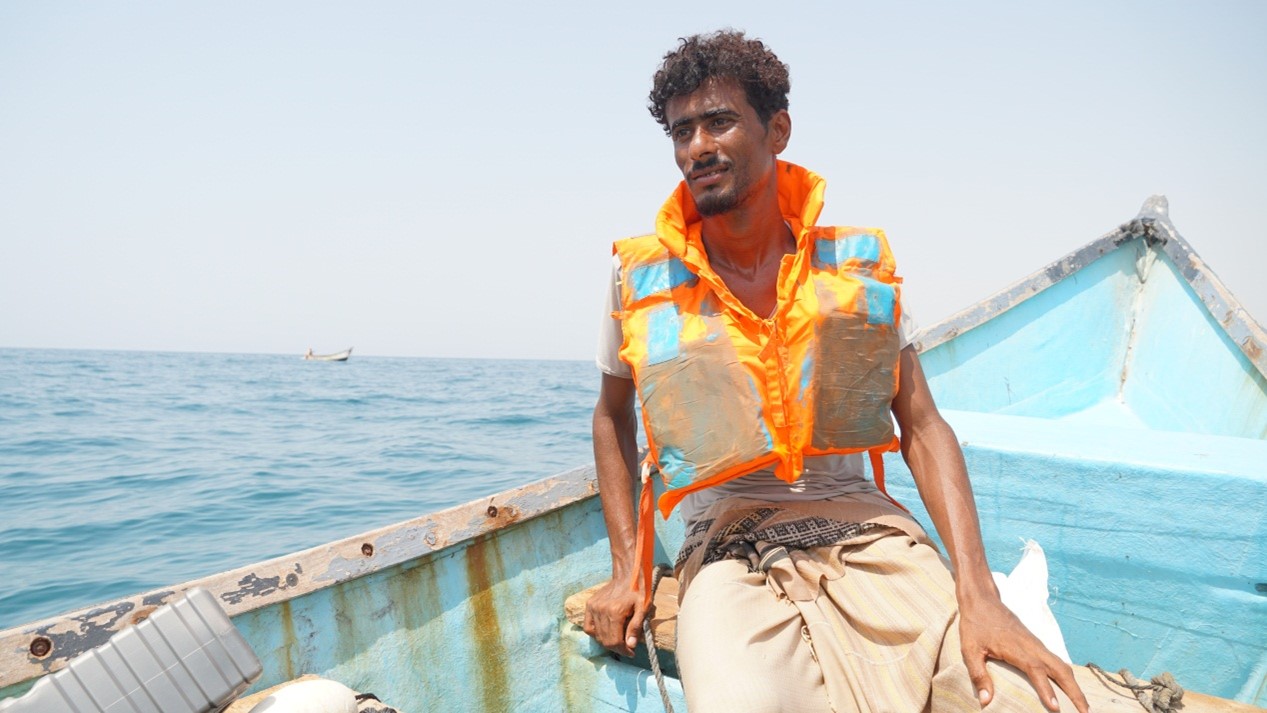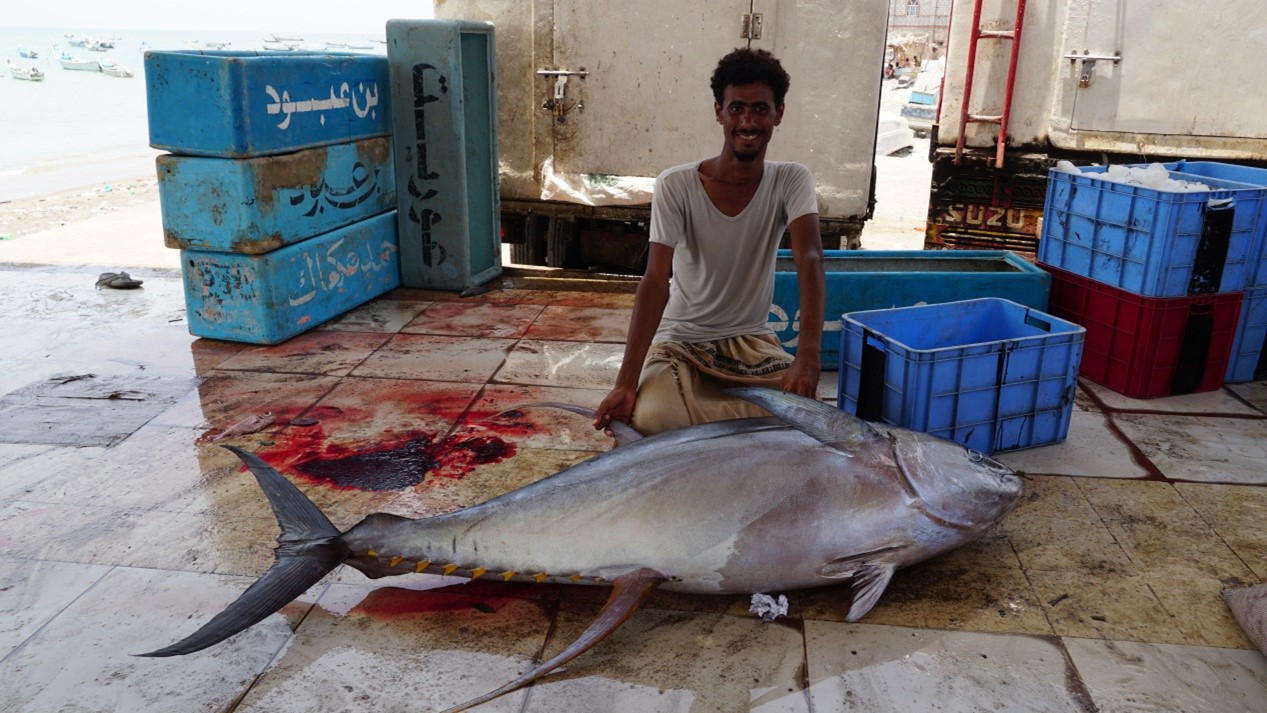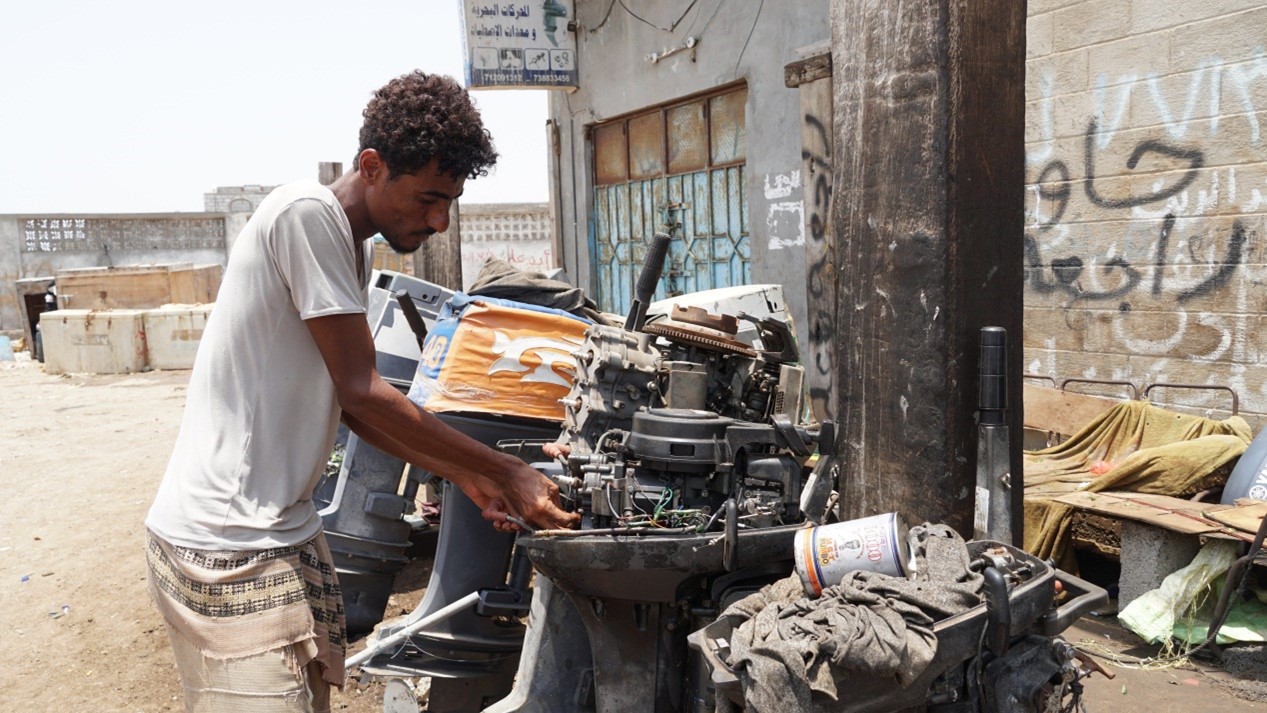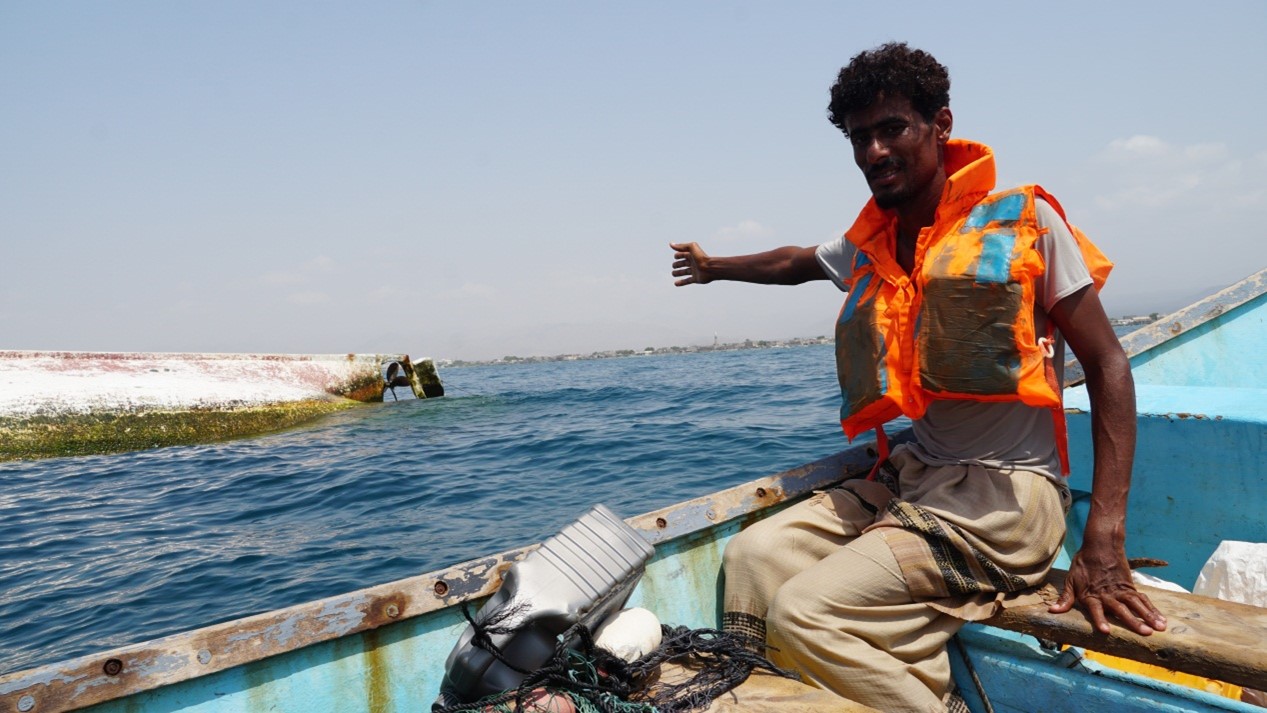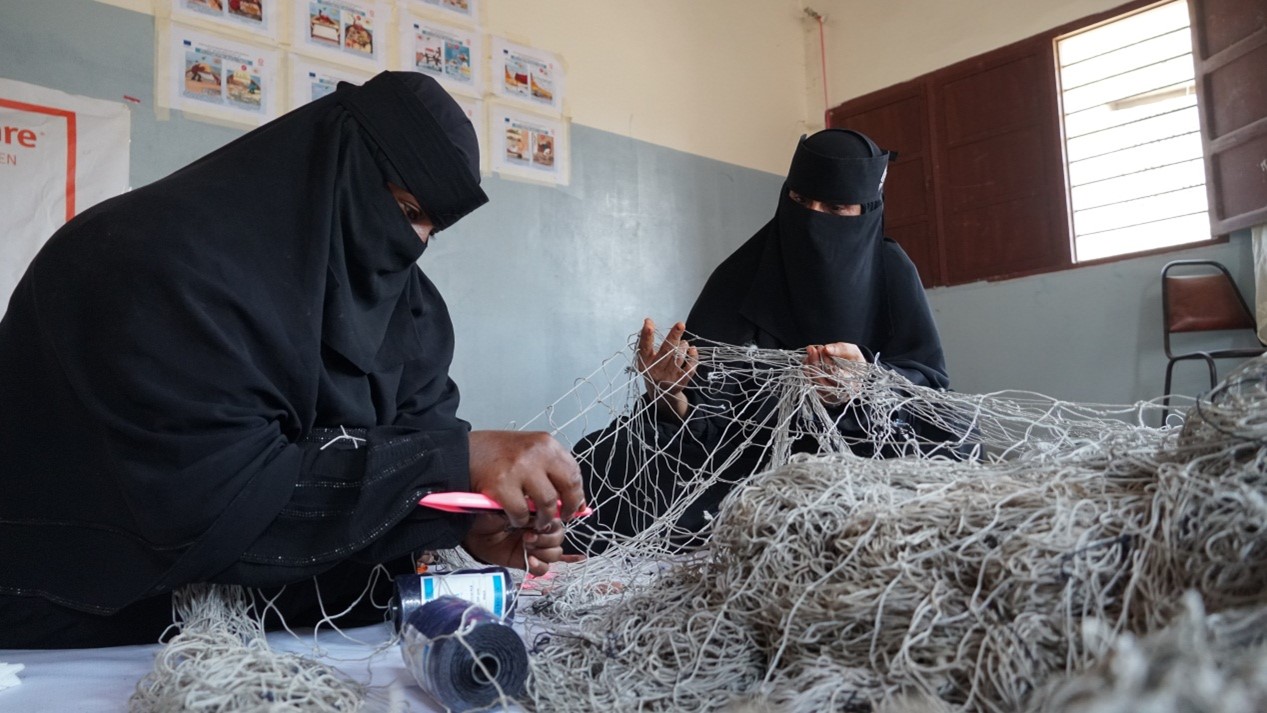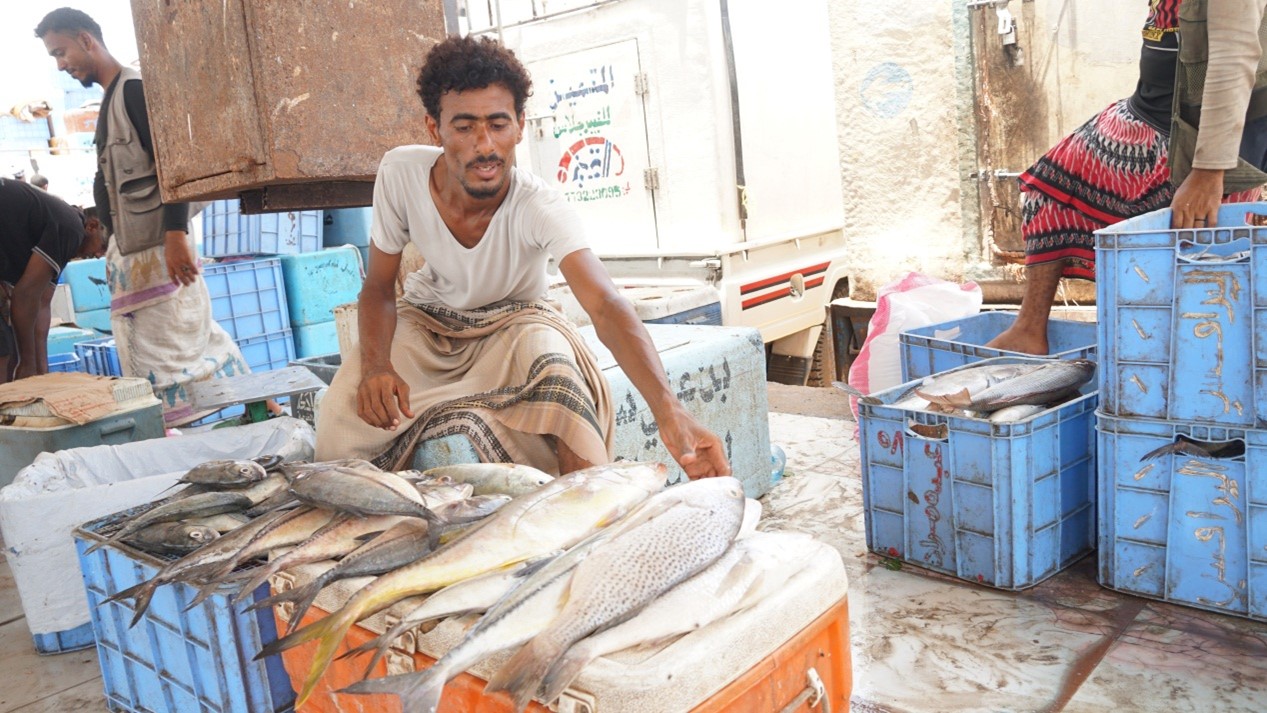Dhaif-Allah Ali, a 39-year-old father, lives in the coastal city of Shuqra with his wife and three children. After graduating from university, it was difficult for him to find a job, so he started working as a fisherman. To earn a living, some fishermen venture out to sea with only the simplest and most basic resources available to them. They can explore waters that are rich in fish resources and yet, these very waters can be very dangerous in their quest to avoid starvation.
Yemen’s coastline, once a thriving expanse of more than 2,000 km, brimming with fishing grounds, supported thousands of livelihoods and bolstered the national economy. However, the war has plunged the nation into a humanitarian crisis, with over 17 million people reliant on food aid.
“Young people in Shuqra city suffer from unemployment. Like many residents, I resort to fishing,” states Dhaif. “We suffer from issues of overfishing in the sea and rapid climate change. Fishermen have to take longer trips, farther out, with inappropriate equipment to reach the fish and so we face the dangers of the sea.”
